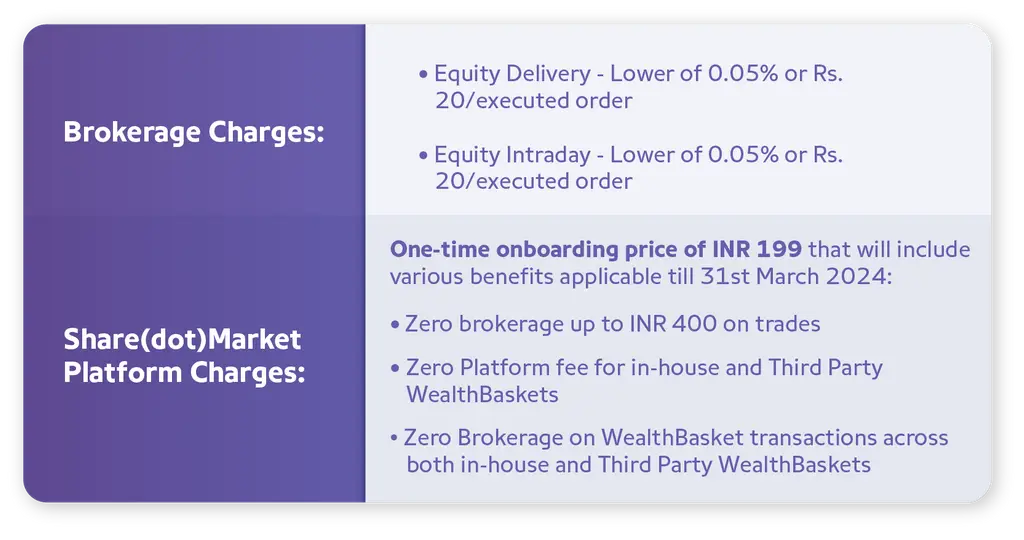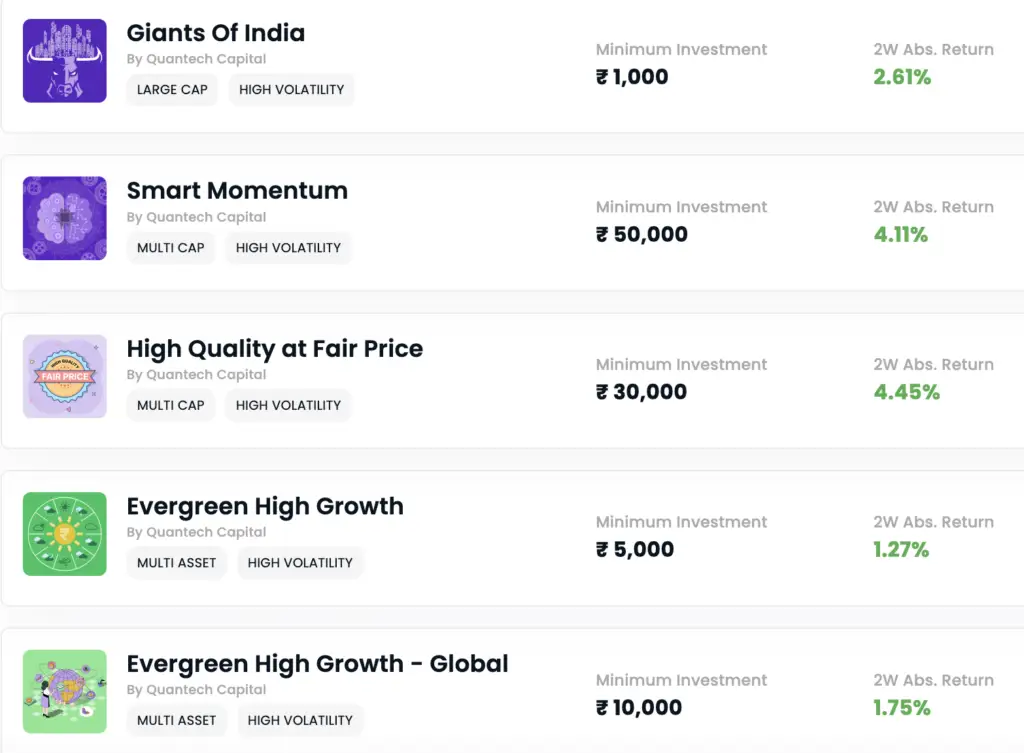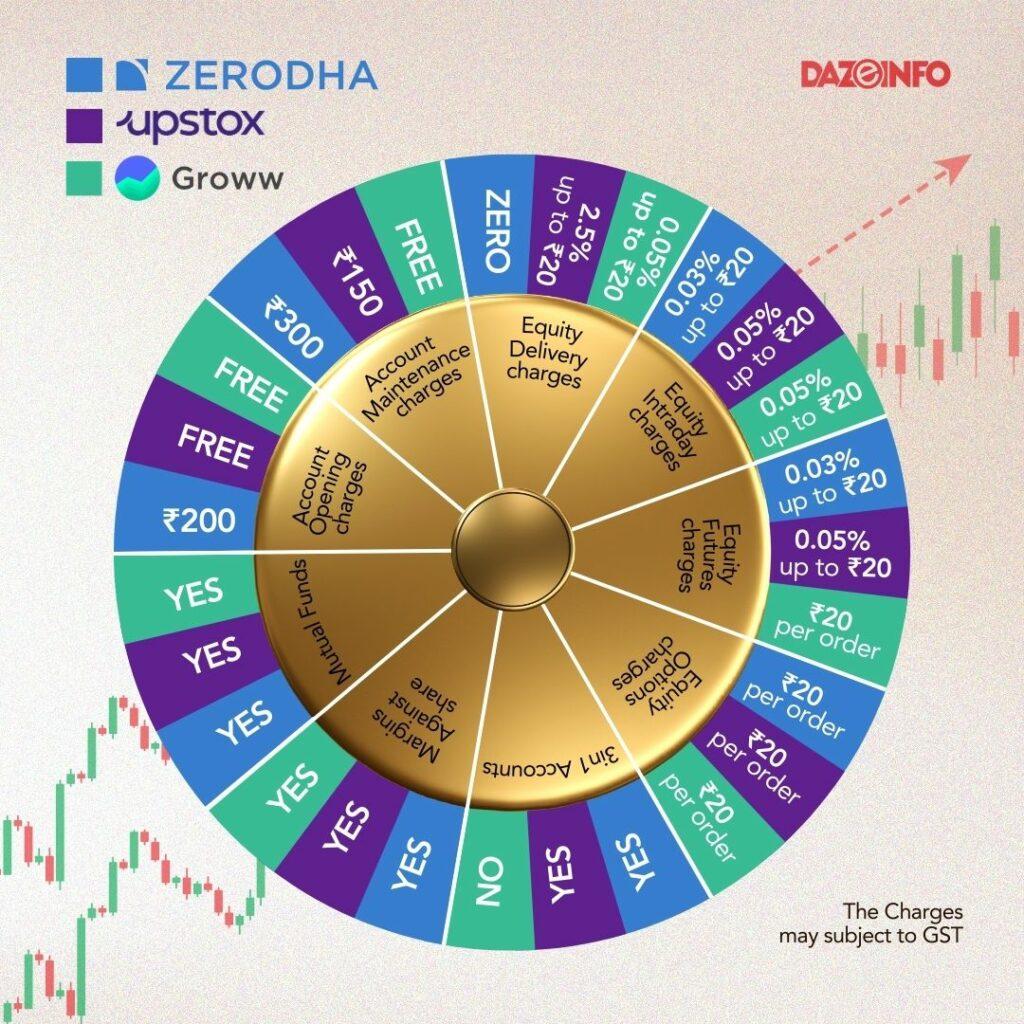Zerodha, the stock brocking king of India, now finds itself in the midst of an exciting battle for supremacy. And this rival is none other than PhonePe, the UPI giant backed by the retail powerhouse Walmart, Inc.
It’s a David and Goliath showdown in the world of finance!
Interestingly, PhonePe has recently taken its first steps into the stock trading arena with the launch of its game-changing app, Share.Market. The app not only allows users to trade and invest in stocks, but also dip their toes into the thrilling waters of mutual funds and ETFs (exchange-traded funds).
The launch of the Share(dot)Market has set the industry abuzz, with many experts suggesting that PhonePe is not only a threat to Zerodha but also to other key players like Groww and Upstox, both backed by Tiger Global, an investment firm popularly known for its aggressive approach.
Now, you might be wondering how on earth can Zerodha, a digital trading powerhouse that raked in a whopping Rs 4,964 crore in revenue and boasted a net profit of Rs 2,094 crore in FY22, be even slightly perturbed by PhonePe, which reported a modest Rs 1,646 crore in revenue and a jaw-dropping net loss of Rs 2,014 crore during the same period?
It’s a classic case of the underdog taking on the reigning champ!
It would also be interesting to delve deep into the subject to understand what’s driving India’s corporate giants, including Reliance, to suddenly swarm into the brokerage business like bees to honey?
Before we unravel these riddles, let’s first take a ride through the inner workings of Zerodha’s stock market empire.
Zerodha: The Stock Market Leader
Zerodha, founded on the 15th of August, 2010, is an Indian financial services company primarily operating as a stock brokerage firm. What sets Zerodha apart from other stock trading platforms is its business model, centring around providing a low-cost and technology-driven platform for individuals and businesses to trade and invest in various financial instruments, primarily in the Indian stock market. The primary sources of revenue for this bootstrapped stock brokerage firm include brokerage fees, sales of premium tech products like the Kite Connect API, collections from user onboarding, and the collection of exchange transaction charges from clients on behalf of various securities exchanges.
At the heart of Zerodha’s success is its robust and user-friendly online trading platform, facilitating the buying and selling of various financial instruments such as stocks, commodities, currencies, and more through both its website and mobile app. It’s not just a basic platform; it’s packed with tools for research and analysis.
Additionally, Zerodha offers diversified investment options beyond equities and derivatives, including mutual funds and bonds, all accessible through their platform. Beyond just making money, Zerodha actively runs numerous popular open online educational and community initiatives, further empowering and educating retail traders and investors.
PhonePe’s Bold Leap into the Stock Market Arena
The newly launched Share.Market app by PhonePe seems to be taking a page out of Zerodha’s playbook. This app enables users to trade in stocks (both intraday and delivery) and invest in mutual funds and exchange-traded funds (ETFs), at a competitive discount broking price. However, what’s catching the eye is PhonePe’s emphasis on passive investing through ‘WealthBaskets‘. These are baskets of stocks carefully put together by licensed entities and their research teams, a concept that echoes Amazon and Zerodha-backed Smallcase’s approach.
PhonePe is giving retail investors the power to build their own custom “WealthBaskets,” analyze and fine-tune their existing portfolios, and even delve into quantitative analytics for stocks and mutual funds.
For those who prefer active trading, PhonePe’s trading platform aims to provide tools for futures and options (F&Os), strategy development, and visual trading. The fintech major is planning to introduce F&O investments on the platform by the end of the year. However, this is the same as what Zerodha and other existing players are already doing.

To get users on board with Share.Market app, PhonePe will soon start prompting its mutual fund customers to explore the new app. However, mutual fund transactions will still reside on the main PhonePe app, acting as a bridge between the two offerings.
“Mutual funds is the entry point and the right selection point. We cannot throw equity trading to payment users, that’s why a different app,” Rahul Chari, co-founder and CTO at PhonePe, told ET.
In 2022, PhonePe made significant acquisitions in the wealth tech sector by acquiring WealthDesk and OpenQ, together valued at $70 million. These acquisitions are part of PhonePe’s broader strategy to expand its financial services beyond payments. In 2021, PhonePe initiated its journey into India’s competitive stockbroking business and applied for a mutual fund license from the Securities and Exchange Board of India (SEBI). This license will enable PhonePe to offer its own mutual funds, marking a significant step in its quest to become a comprehensive financial services platform.
Does PhonePe Have the Edge Over Zerodha?
Even though Zerodha stands as a shining example of a profitable bootstrap success story in India, swiftly achieving unicorn status and dominating as the nation’s largest stockbroking platform, it cannot afford to overlook the game-changing entry of PhonePe into the stock broking business with its Share.Market platform. Even Zerodha’s cofounder and CEO, Nithin Kamath, acknowledges this.
During a discussion at the Moneycontrol Startup Conclave 2023 in July 2023, Kamath expressed that players like PhonePe are essential to expanding the market. He noted that PhonePe, with its extensive customer base, has the potential to be a positive force for both the capital markets and users, emphasizing the importance of such entrants in driving growth.
Here are some factors making PhonePe a strong competitor not just to Zerodha but to all the other stock brokerage firms in India.
PhonePe’s WealthBasket: It is a game-changer, setting it apart from the competition. Think of it as a special selection of stocks and ETFs (kind of like investment packages) handpicked by research analysts and expert advisors licensed by SEBI, India’s financial regulator. Surprisingly, this unique and much-needed feature isn’t available on any popular trading platforms such as Zerodha, Groww, or Upstox. PhonePe’s WealthBaskets in Share.Market app is designed to cater to a wide range of investors, from newcomers to those with well-defined investment strategies. It’s like having a friendly guide to help you make smart investment decisions and potentially make money from your investments.
PhonePe has created different types of WealthBaskets in its share trading app, each with its own style. Some of them are “Giants of India,” “Smart Momentum,” “High Quality at Fair Price,” “EverGreen High Growth,” “MNC Advantage,” and “Digital India.” These categories offer information such as minimum investment requirements and historical returns (2W Abs Returns, %), providing investors with valuable insights to make investment choices that suit their preferences and objectives.

Massive Customer Base: PhonePe has 48 crore (480 Million) registered users, representing a staggering 40% of Internet users in India who are now on its platform. Even if PhonePe is able to convert 5% of these registered users to download and use its share market app, it will gain an immediate and substantial advantage in customer acquisition. In stark contrast, Zerodha has over 1 crore (12 million) strong customer base, placing millions of orders daily. Among its competitors, Upstox reached the milestone of 1 crore (10 million) users in May 2022. However, the number of active users declined from 5 million in May 2022 to 3.4 million in January 2023. Meanwhile, Groww has 5.2 million clients. This underscores the sheer magnitude of PhonePe’s potential reach and influence in the market, which could significantly disrupt the status quo.
PhonePe’s move into stock trading could also spell trouble for its rival, Paytm, which ventured into wealth management in 2018 with its app Paytm Money and later introduced equity trading in August 2020. Paytm claims to have over 21 million users on its Paytm Money app. However, it is unclear how many of these users are exclusively using the app for stock trading.
Integrated Ecosystem: What sets PhonePe apart from Zerodha and other stock trading apps is the UPI app. The seamless integration of stock trading with PhonePe’s existing UPI app allows users to make secure and fast payments for stock purchases made within its Share.Market app. The convenience factor is further enhanced as users can easily sign up for “Share.Market” app using the same login credentials they use with PhonePe’s UPI app.
Competitive Pricing: India, known for its price-sensitive consumers, has a penchant for making purchase decisions based on the price tag, offers, and discounts associated with a product or service. To gain a sizable market share, PhonePe might soon adopt competitive pricing models or offer promotions. This pricing strategy aims to allure cost-conscious traders and investors who are always on the lookout for a bargain. As a testament to this approach, PhonePe’s share trading app currently offers zero brokerage fees up to Rs 400 on trades or until March 31, 2024 (whichever occurs first). What’s more, they sweeten the deal with a full year of no account maintenance charges.
However, other stock brokers such as Zerodha, Groww and Upstox are also offering their own competitive brokerage charges for equity delivery and intraday trading. This clash of the titans in the stock trading arena promises an intriguing showdown for the wallets of traders and investors alike.

But are these factors compelling enough for PhonePe, the fintech major, to take on Zerodha, who has been bootstrapped from the very beginning, knows the art of customer acquisition at minimum CAC (Customer Acquisition Cost), and has not only outperformed traditional brick-and-mortar brokerage firms but has also sprinted past online competitors like Upstox and Groww? If not, what is the secret sauce that crowns Zerodha as the undisputed king of stock trading and investment in India?
What Makes Zerodha The King of Stock Brokerage Business?
Stock brokerage firms generate their revenue primarily from the commissions on stock market investments and trading.
Zerodha’s journey began 12 years ago by offering equity trades for both traders and investors at a groundbreaking rate of ₹20 per trade. This move established Zerodha as India’s pioneering discount broker. Over time, they made long-term/delivery trades free of charge and limited the ₹20 fee to only intraday trading and F&O (Futures and Options) trades.
In essence, Zerodha’s revenue model relies on the volume of transactions conducted on their platform rather than charging higher fees per transaction. This approach ensures that users can trade efficiently and cost-effectively, encouraging more trading activity on their platform.
As a result, Zerodha’s revenue from fees and commissions increased 83.3% YoY to Rs 4,129 crore in FY22. Given that equity investing is offered free of charge, it’s the active traders who effectively subsidize the non-paying equity investors. Approximately 85% of Zerodha’s trading revenue is generated by just 10-20% of their active trader base.
Nikhil Kamath, who oversees treasury and risk management at Zerodha, underscores their approach to competition, grounded in a fundamental principle. He explains that if a company earns ₹20 on a transaction but spends ₹10,000 to acquire a customer, it becomes a challenging business model. In such a scenario, the need to monetize the transaction by selling other products may arise, which might not align with the user’s interests.
Therefore, Zerodha’s prudent approach to customer acquisition gives the company an edge over its existing and upcoming competitors. The company hasn’t been burning cash to acquire customers while all its competitors are doing it; as a result, others are losing money in the form of high customer acquisition costs (CAC). In fact, the ₹200 sign-up fee Zerodha charge per customer during onboarding contributes to their overall revenue.
Zerodha firmly adheres to a philosophy that opposes blindly chasing growth at any cost. This is possible as the company has never raised any external funds so far, empowering them to set their own rules to run the business.
On the other hand, the majority of Indian startups, regardless of whether they operate in the e-commerce or fintech sector, typically secure funding from external investors and venture capital firms. This financing often obliges them to set annual revenue and user acquisition targets. Consequently, these well-funded startups must allocate substantial quarterly budgets towards marketing, advertising, and implementing various discounts and promotions to grow their customer base on their platforms.
What’s Driving the Influx of Startups into the Trading Market?
Over the past year, an increasing number of fintech startups have ventured into the stock trading arena, with many preparing to introduce their offerings in the coming months. Notably, even corporate giants like Reliance have entered the fray, aiming to secure a substantial portion of this dynamic market
This surge of fintech startups and corporates entering the trading market can be attributed to several key factors.
First and foremost, there has been a growing interest in digital investing among individuals, especially millennials and savvy young professionals. This demographic shift, along with greater access to information and online platforms, has fueled the demand for trading and investing services.
Secondly, the COVID-19 pandemic has also played a pivotal role, as remote work arrangements led many individuals to save their earnings and seek digital investment opportunities instead of traditional assets like real estate or automobiles.
Thirdly, the Initial Public Offerings (IPOs) boom in India over the past five years. The rise in the number of IPOs has presented lucrative opportunities for brokerage firms, resulting in not only a massive surge in trading activity but also a handsome inflow of commissions.
For Zerodha, this IPO bonanza translated into a higher daily average user count during FY22. The platform was buzzing with activity as investors clamoured to get a piece of the IPO action. However, there has been a considerable decline in the number of companies filing for IPO in the last 12 months.
According to a report by EY (Ernst and Young), although the number of Indian IPOs increased from 134 to 138, raising a total of $7.5 billion, the overall proceeds experienced a sharp 56% drop from the $17.3 billion recorded in 2021. Additionally, the startup IPO market also took a hit, with the number of startup IPOs falling from 11 in 2021 to just two in 2022, reflecting the broader global downturn in IPO activity.
The Indian stock market has witnessed remarkable expansion over the past few decades. The Bombay Stock Exchange (BSE) and the National Stock Exchange (NSE) emerged as the primary stock exchanges in the country’s financial landscape. The number of Demat account holders in India increased 30.95% YoY, from 84 million in 2022 to 110 million in January 2023. This signifies a growing interest and participation in the Indian stock market among investors and underscores its increasing importance in the country’s financial ecosystem.
In A Nutshell
PhonePe, with its massive customer base, could position itself as India’s largest stock trading platform within the next two years. The introduction of WealthBaskets in PhonePe’s Share.Market app could prove to be a golden ticket to a world of investment opportunities, backed by expert guidance and data-driven insights. However, defeating Zerodha is no walk in the park; many startups backed by big VC firms have attempted and, thus far, fallen short of this challenge.
It would be interesting to see how Zerodha, playing by a similar rulebook of frugal spending on marketing and customer acquisition, will maintain its dominance in the Indian stockbroking market. The competition between these two industry players promises to be a fascinating one, with each platform bringing its unique strengths and approaches to the forefront.
Which share trading app are you currently using? Let us know in the comment section!




